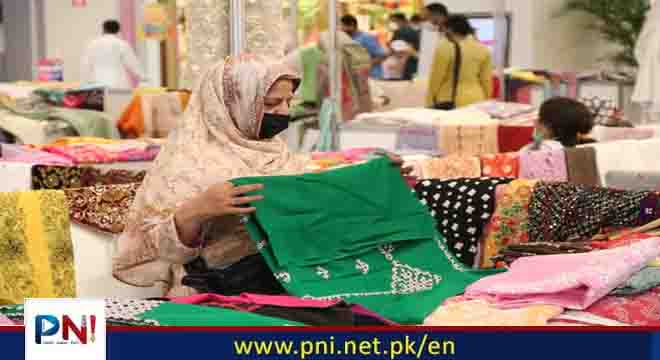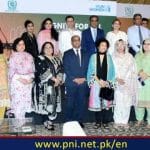ISLAMABAD, Feb 03 : For many individuals in Islamabad, women vending has become more than just a livelihood, it is a vital source of income and empowerment for some of society’s most marginalized groups, including the unemployed, less educated, and those facing limited opportunities. In the bustling streets of the capital, these women are quietly playing an essential role in the local economy, often providing for their families and communities against the odds.
As dawn breaks over Islamabad, a group of determined women can be seen setting up their stalls, offering fresh fruits, vegetables, and other essential goods. One such vendor is 35-year-old Fatima, who has been selling clothes and women’s essentials at Peshawar Mor Sunday Bazar.
In an interview with APP, she shared her personal journey, explaining how starting her own stall was initially a struggle. But, driven by the need to provide for her children, she persevered. “Today, I am proud to say that, as the breadwinner of my family, I am able to give them a decent education and a comfortable life,” she said.
Fatima’s story reflects the resilience of many women vendors in Islamabad, who, despite facing long working hours, meager profits, and numerous challenges, continue to work tirelessly for the well-being of their families. These women are not just surviving—they are thriving, becoming pillars of support for their communities.
Afshi Safdar, another vendor, offered an insightful perspective on the role of women in vending. “Women who lack formal skills or education often turn to vending as a last resort,” she said. “However, I must say that vending has empowered us to take control of our finances. It’s been a game-changer for us.”
Afshi pointed out that the impact of these women extends beyond their immediate families. “We are the backbone of Islamabad’s informal economy, providing essential goods and services to hundreds of people every day,” she added, emphasizing the indispensable role they play in the local economy.
In the words of Shakeela Sabeen, a regular customer, “I rely on these women vendors for my daily needs. They are always available, and their prices are affordable.” Shakeela went on to note that vending is a challenging job that requires not only physical stamina but also expertise and strong negotiation skills. “It’s a demanding profession that requires resilience, strategic thinking, and business acumen,” she said.
These women embody the spirit of empowerment seen across South Asia, where women are increasingly entering informal sectors like vending as a means of securing financial independence. In countries like Pakistan, where women often face cultural and economic barriers to entering the formal workforce, these vendors represent an important shift. They are not only overcoming social constraints but also challenging traditional gender roles, paving the way for future generations of women who aspire to achieve economic autonomy.
The stories of these vendors highlight an essential truth, women in South Asia, despite their challenges, are an unwavering force for change, showing that empowerment is not just about formal employment, but about the ability to create opportunity in the face of adversity.
Follow the PNI Facebook page for the latest news and updates.








